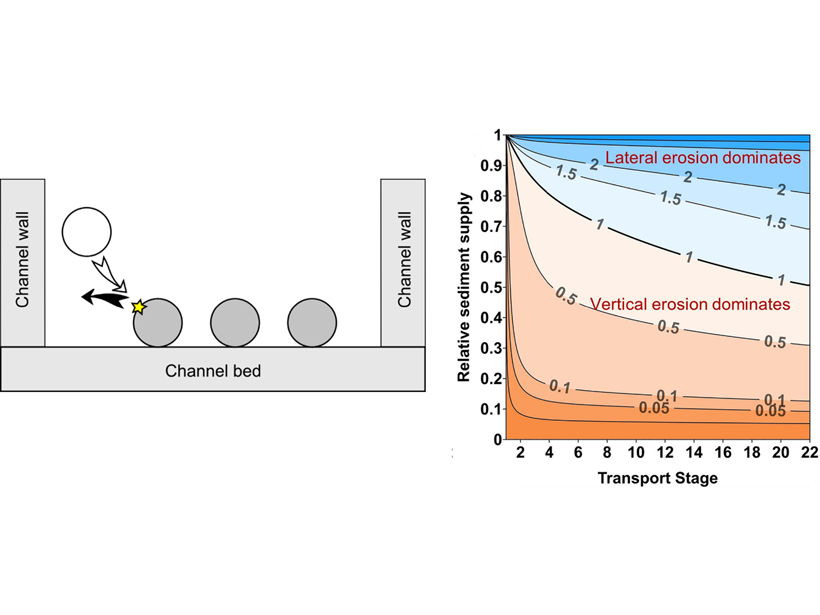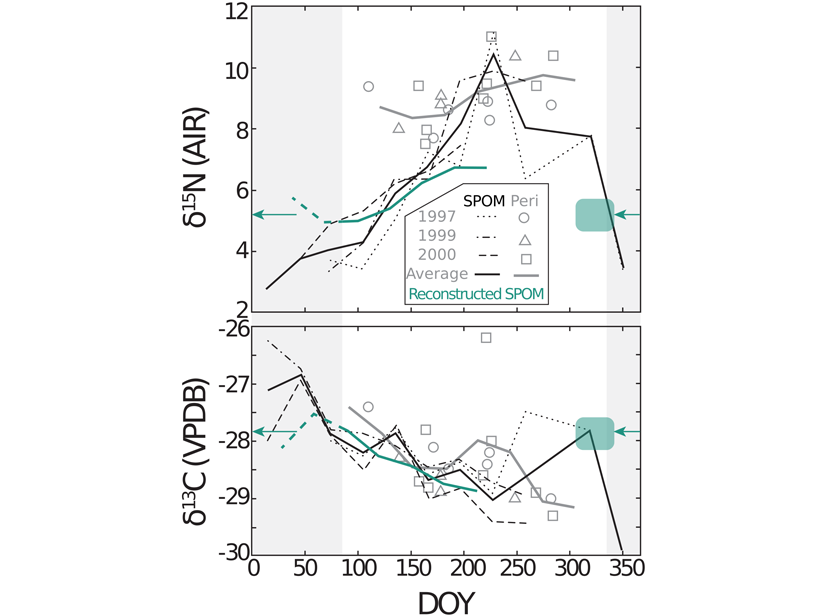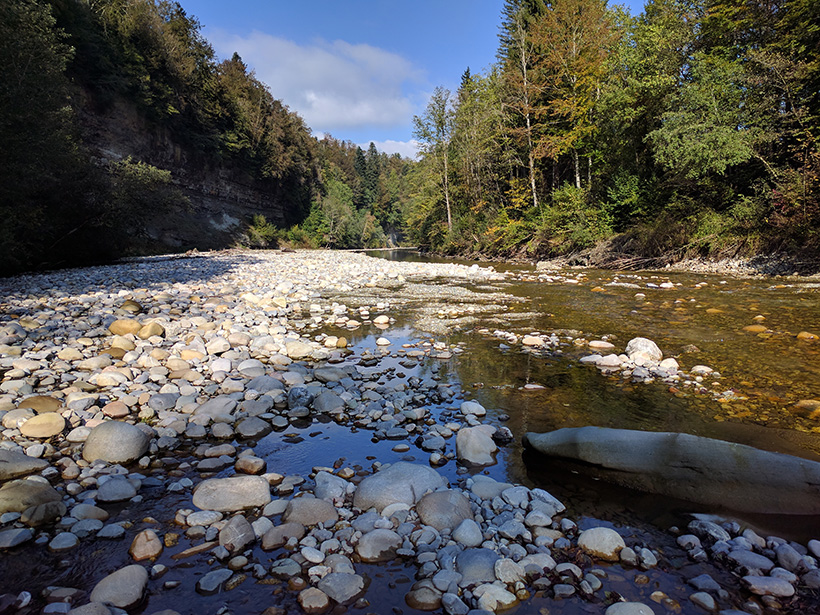Abandoned hardrock mines and climate change cause metals and other elements to leach into streams. They also put rare earth elements into the water, a new study finds.
rivers
Impacts by Moving Gravel Cause River Channels to Widen or Narrow
A new analytical model describes how the amount and grain size of sediment transported by rivers influences bedrock channel width, which can be used to predict where rivers will widen or narrow.
Minimal Evidence of Permafrost Carbon in Siberia’s Kolyma River
New research finds that Arctic rivers currently transport limited permafrost-derived dissolved organic carbon, which has implications for understanding the region’s changing carbon cycle—and its potential to accelerate climate change.
Building a Better River Delta
People have been engineering river deltas for millennia, but new research identifies the optimal placement for diversions that benefit both local communities and the environment—and it might be close to a city.
Irtysh River Drove Arctic Sea Ice Expansion 3 Million Years Ago
The Siberian river’s creation caused a massive influx of fresh water into the Kara Sea and radically changed the Arctic Ocean and Earth’s climate.
Analysis Reveals Patterns of Streamflow Generation Across USA
A new study transforms a classic conceptual framework into a quantitative classification of streamflow generation patterns.
Tracking Excess Nitrogen with Freshwater Mussels
Mussel shell periostracum and carbonate bound organic matter document seasonal variability in the isotopic composition of riverine suspended particulate organic matter.
Why Rivers Need Their Floodplains
Floodplain storage of water, nutrients, and sediment is critical to sustaining river ecosystems but has been reduced by human activities.
Tracing Water from River to Aquifer
A new technique using dissolved noble gas tracers sheds light on how water moves through an aquifer, with implications for water resources and their vulnerability to climate change.










